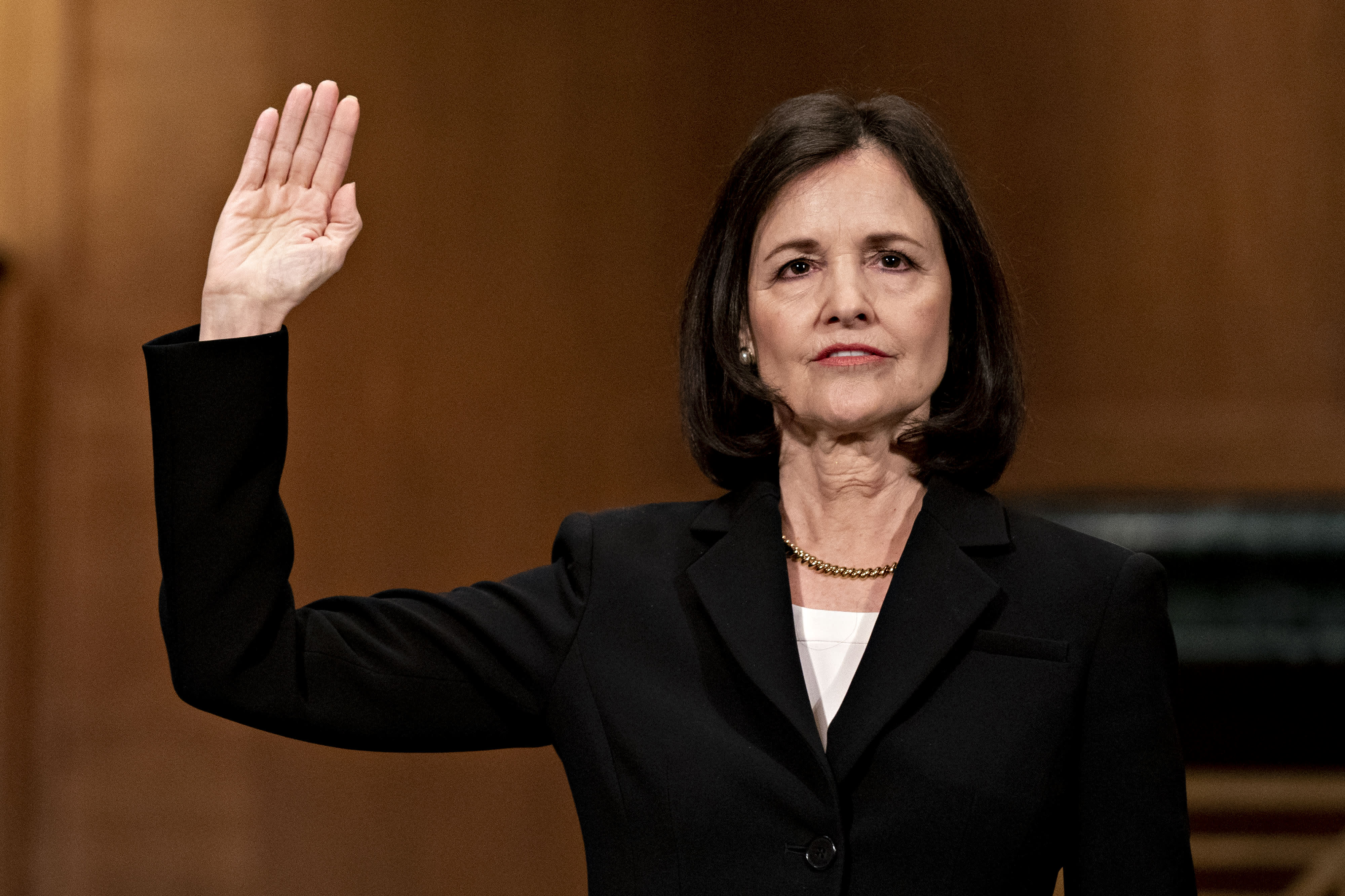The Senate banking committee on Tuesday approved controversial Federal Reserve nominee Judy Shelton as well as Christopher Waller for two vacancies on the central bank’s board of governors.
Their nominations now head to the full Senate for confirmation. President Donald Trump had announced his intention to nominate the pair in July 2019 but the move had been held up during the pandemic and amid mounting controversy over Shelton.
Shelton gained the committee’s nod on a party-line 13-12 vote five months after a contentious confirmation hearing on her views.
“Every Democratic member of this committee thinks we should have another hearing and talk to her and frankly reject her,” said Sen. Sherrod Brown, D-Ohio. “Dr. Shelton is a threat to our economy, our democracy, our country.”
Waller was approved by an 18-7 margin.
While Waller faced little opposition during a confirmation hearing in February, Shelton had a much harder time.
She faced persistent and at-times hostile questions about her support for the gold standard, her beliefs on whether bank deposits should be insured and whether the Fed should be independent of political influences.
Leading up to Tuesday’s vote, Rep. Don Beyer (D-Virginia), vice chair of the Joint Economic Committee, released a statement opposing Shelton’s move to the central bank, said her “extreme ideas” should disqualify her for confirmation.
“The current economic crisis once again has underscored the critical role of the Federal Reserve and the need for strong, independent leadership at the central bank. Judy Shelton miserably flunks that test,” Beyer said.
In addition to her role as an advisor for Trump, Shelton has worked at the Hoover Institution and was the U.S. director for the European Bank for Reconstruction and Development. Waller’s nomination was far less controversial.
More than 100 economists signed a letter to the Senate advocating for his confirmation. He is executive vice president and director of the St. Louis Fed. Waller also has taught economics at Notre Dame and the University of Kentucky.
Still, Brown voted against Waller, saying that the nominee favored less restriction on banks. Brown also objected to the “package deal” nature of the nominees.
This is breaking news. Check back here for updates.
